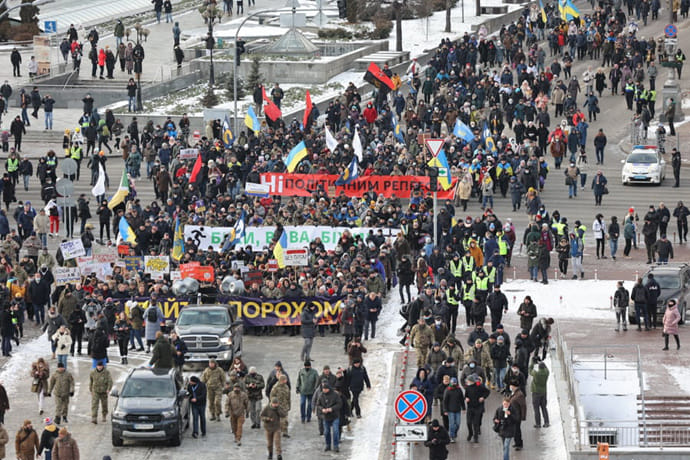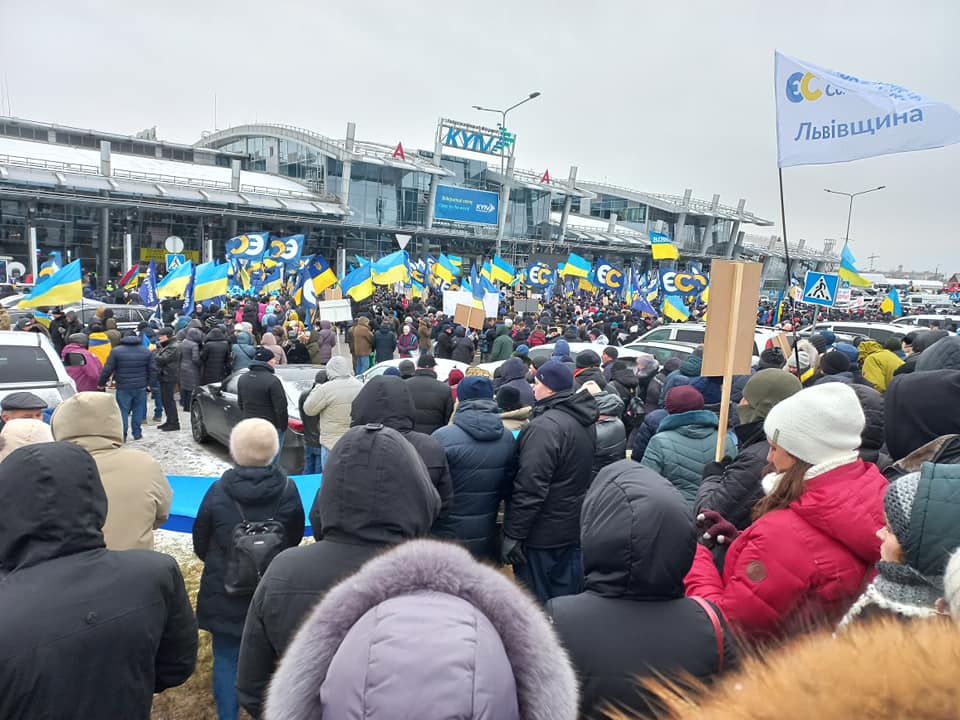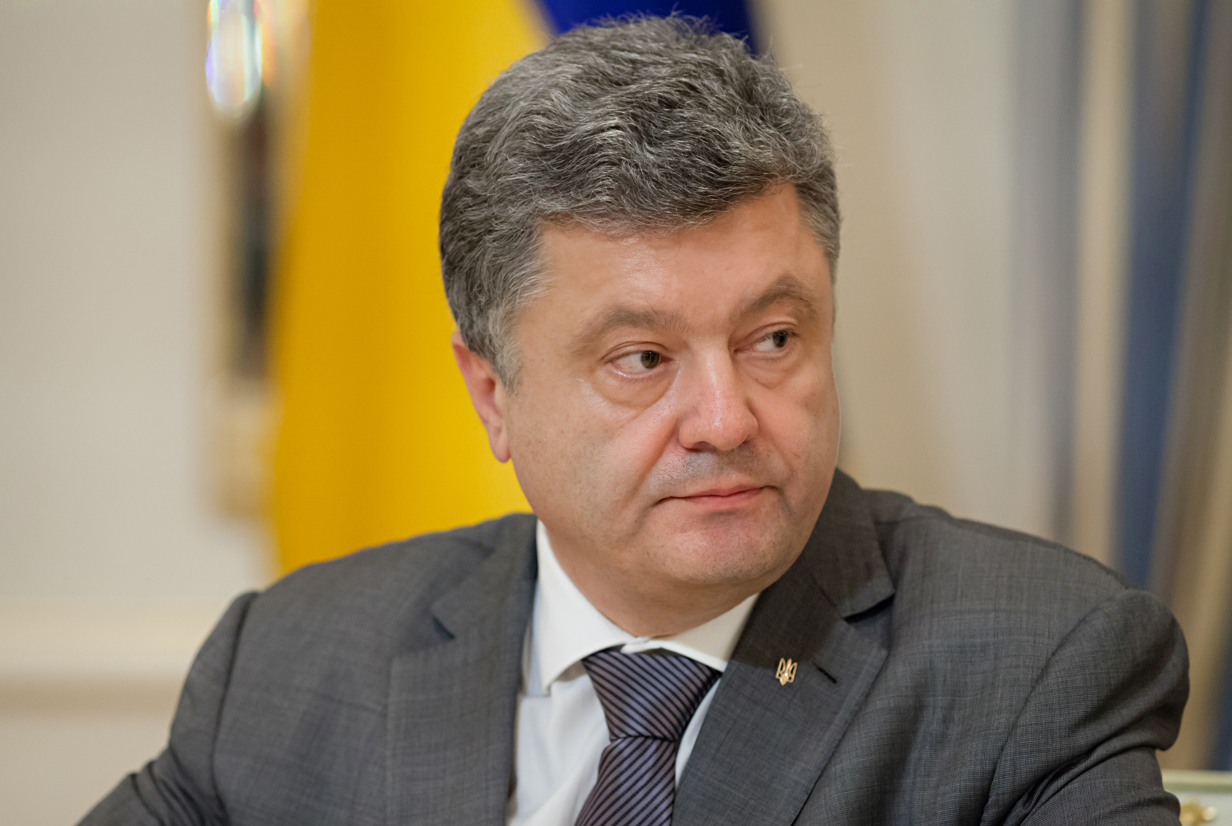The Kyiv Pechersk district court refused to arrest Ukraine’s fifth president Petro Poroshenko in a case where he is charged with state treason for alleged facilitation of coal supplies from occupied Donbas to Ukraine in 2015. The court, however, did impose restrictions: Poroshenko must hand in his passport for traveling abroad and must not leave Kyiv Oblast without permission, as well as appear in court on a judicial summons.
However, the measures asked for by the prosecution, pre-trial detention and bail of UAH 1 billion ($37 million), were not applied.
The ruling follows lengthy court hearings on 17 January, the day Poroshenko returned to Ukraine after several meetings abroad. He was met by several thousand of his supporters, who held the rally near the court during the hearings. They see the case as political persecution of the leader of the European Solidarity party, the main challenger of contemporary Ukrainian president Volodymyr Zelenskyy, according to recent polls.
Prosecutors claim Poroshenko ordered to disrupt coal supplies from South Africa in 2015 and instead facilitated the arrangement of coal supplies from occupied Donbas. They also claimed Poroshenko acted as part of the conspiracy that also involved Victor Medvedchuk, MP and informal leader of pro-Russian party Oppositional platform for life. Prosecutors asked the court to apply preliminary measures for former President Poroshenko in the form of a two-month arrest with an alternative of one billion hryvnias bail. Prosecutors say Poroshenko may put pressure on witnesses, obstruct the investigation or hide evidence.
Poroshenko’s lawyers claim Poroshenko was artificially added to this case on coal supplies to damage his reputation by alleged links with notorious Medvedchuk. While there is evidence of illegal coal supplies from occupied Donbas in 2015, there is no evidence that Poroshenko facilitated or benefited from them. They also claim there are numerous procedural violations in the case, including that the Prosecutor General didn’t sign the notice of suspicion for an MP, as required by the law. It was signed by deputy Prosecutor General Oleksiy Symonenko instead. Also, the law requires the Speaker of the Verkhovna Rada to be informed about the notice of suspicion for an MP. He was not informed.
On 17 January 2022, after six hours of thinking on the decision, the judge decided to postpone the court hearing to 19 January at 14:00. In its ruling, the court refused to arrest Poroshenko but ordered the personal commitment. This means Poroshenko is restricted from traveling abroad for the time of investigation, he should visit investigators if they request to do so.
This case is a continuation of the row of about 100 criminal cases opened against Poroshenko since 2019. Some of the cases were passed to court but in none of them, the guilt of Poroshenko has been proved yet.
The case against Poroshenko has raised international concern. In particular, visiting US Secretary of State Antony Blinken appealed to Ukrainians to “stick together” considering the possibility of renewed Russian aggression. He said:
“Don’t let Moscow divide you. This means that leaders inside and outside the Ukrainian government must reject their differences in the common national interest and work together to prepare for difficult days,” he added.
Stefan Füle, former EU Commissioner for Enlargement and Neighborhood Affairs (2010-2014), and Yuiry Hudymenko, the head of the Democratic Axe (Demokratychna Sokyra) political party, personally came to support Poroshenko before court hearings, along with numerous members of his party and NGOs.
Members of Poroshenko’s team met the court ruling as a victory, while Poroshenko himself said:
“We are not celebrating victory, although we seem to have won. We do not celebrate, because Zelenskyy’s crazy scenario as an absolutely mad person is not over yet.”
He called on all democratic forces to unite to repel Russian aggression:
“We must now act responsibly to save Ukraine, as we did in 2014. We call on the irresponsible Zelenskyy government to reach a national consensus. I emphasize once again that Zelenskyy is my opponent. The enemy for me is Putin, as well as for our entire team.“
The State Bureau of Investigation is not satisfied by the court ruling and considers appealing it:
“We believe that this court’s decision on a measure of restraint for the fifth President of Ukraine will not ensure the proper behavior of the suspect Petro Poroshenko, and therefore the prosecution has every reason to appeal.”
Poroshenko returns to Ukraine where he faces treason charges, appears in court (updates)
After the court ruling was announced, supporters of Poroshenko headed to the Presidential Office, holding the banners that urge Zelenskyy to “stop his games” against Poroshenko.









